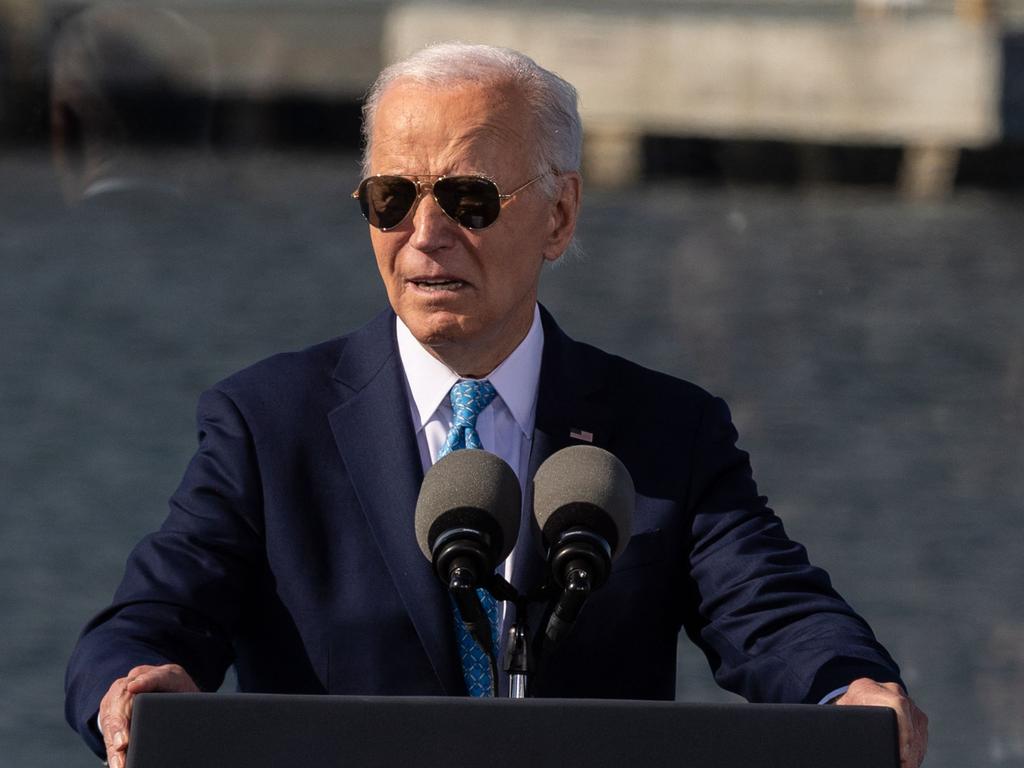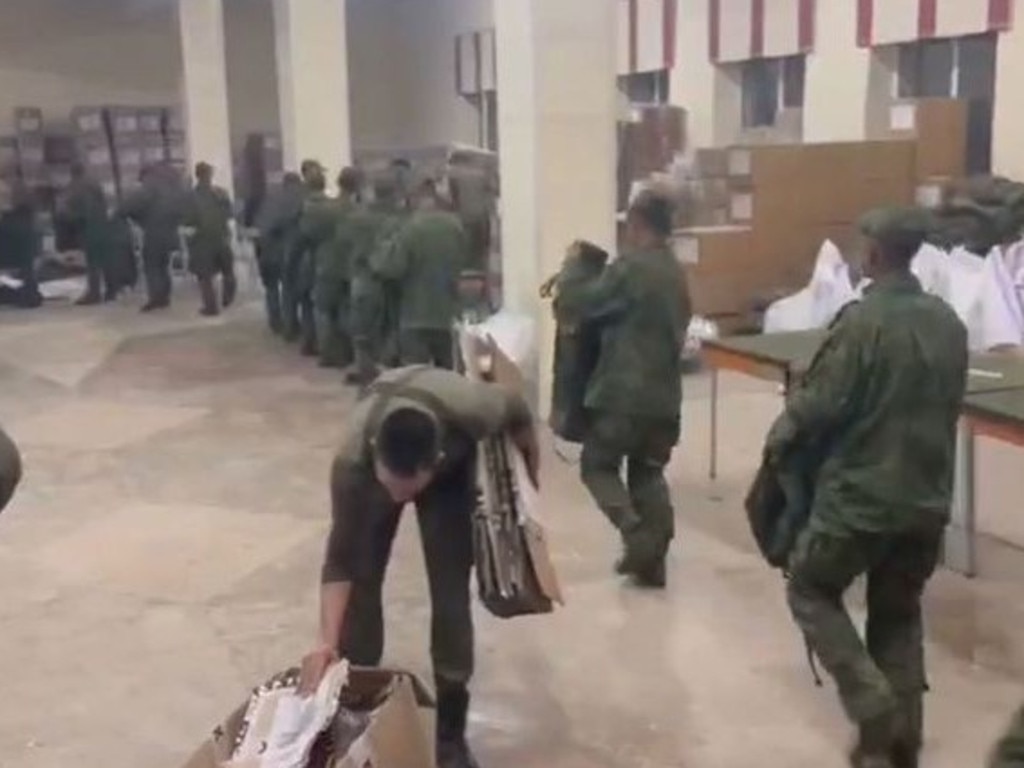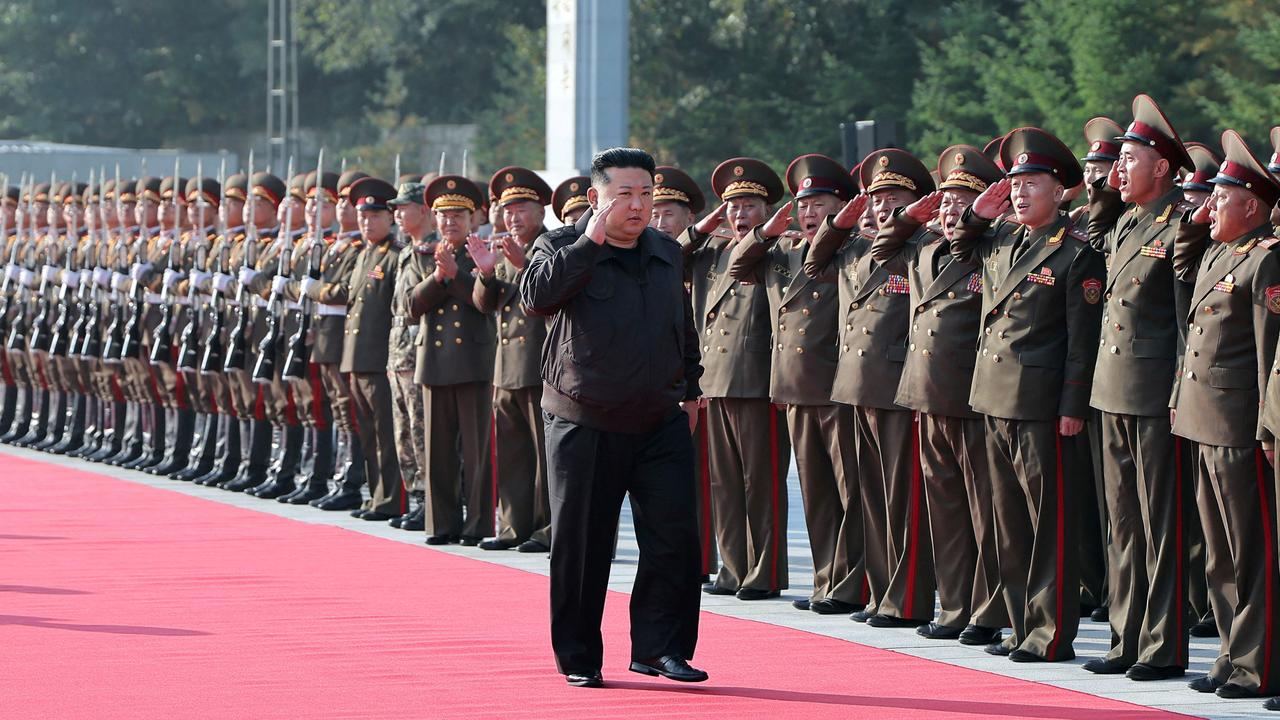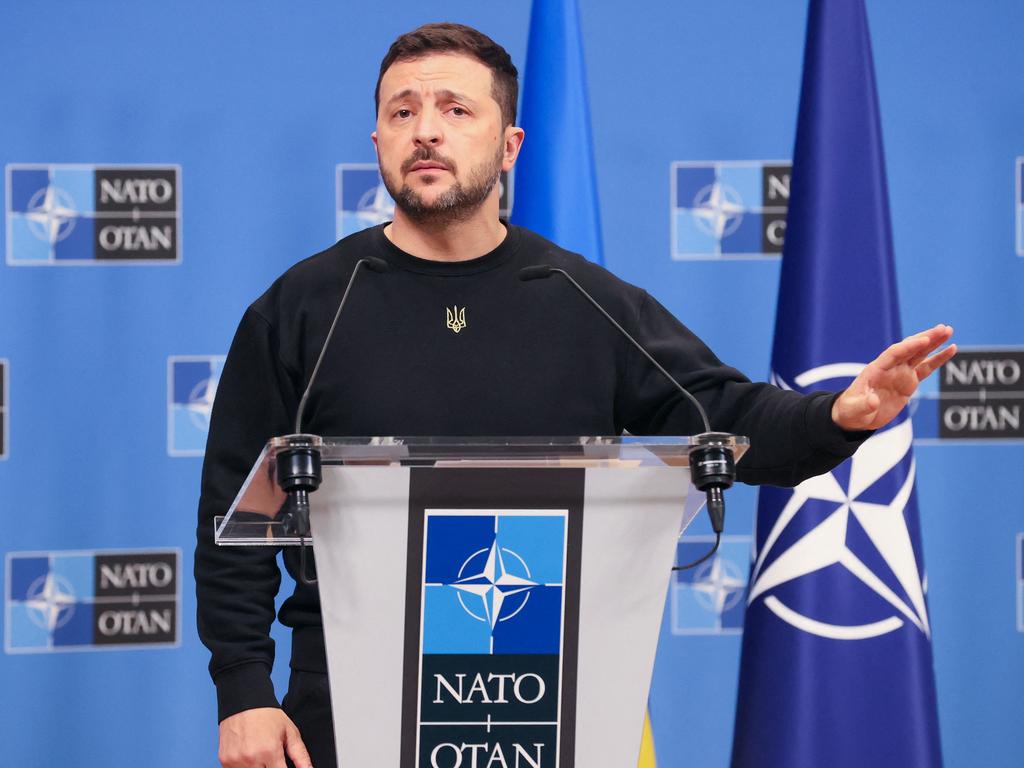
This article is more than
1 year oldTensions continue to mount over North Korea’s involvement in the Russian effort to usurp Ukraine, with thousands of troops slated to join Vladimir Putin’s war effort.
Analysts fear the co-operation between Russia and the hermit state could quickly spill over into a broader conflict. After weeks of speculation over the West’s response to the crisis, US President Joe Biden has made it clear — if North Korean troops join Russian forces on Ukrainian soil, Kyiv should “strike back”.
New reports suggest that some North Korean troops are already in Russia and may inch closer to Ukraine’s front line in the coming weeks, and President Biden didn’t hold back when asked if Ukraine should respond.
“If they go into Ukraine, yes,” he said without hesitation.
While Pentagon spokesman Major General Pat Ryder says that there isn’t yet “information to corroborate” claims of North Korean boots on Ukrainian ground, the US intelligence community remains wary.
According to Ryder, North Korea is believed to have dispatched 10,000 men, several thousand of whom are heading toward Russia’s Kursk region.
Some are reportedly already there, he said.
Reports earlier this month claimed a small group of soldiers had immediately created a headache for Russian commanders trying to keep the partnership under wraps, with 18 North Korean soldiers reportedly fleeing moments after touching down.
“The rest are training out in the east, but we fully expect them to move in that direction at some point,” Ryder explained, adding they’d likely serve in an infantry capacity once deployed.


Defectors line up to ‘psy-op’ North Koreans
It comes as nearly 200 North Korean defectors are lining up to join the fray in Ukraine — not as combatants, but to wage psychological warfare.
According to the South China Morning Post, a group of former North Korean soldiers is prepared to launch an all-out psyops campaign targeting Kim Jong-un’s troops reportedly aiding Russia, turning their insider knowledge of North Korean military culture into a weapon.
“We are veterans who understand North Korea’s military mindset better than anyone,” says Ahn Chan-il, head of the World Institute for North Korea Studies and a defector himself.
Mr Ahn and his group are prepared to unleash loudspeaker broadcasts, distribute leaflets, and work as interpreters in an effort to persuade Mr Kim’s soldiers to question why they’re fighting in a foreign land.
The defectors, part of South Korea’s 30,000-strong North Korean refugee community, share deep anger over Kim’s “aggression and disregard for international law” in sending troops to Russia’s side.
In a statement, the group declared themselves “ready to go to the front, conduct psychological warfare, rescue these soldiers, and dismantle the North’s mercenary policies.”
Drawing on their own experiences of hardship in North Korea’s armed forces, they see this as a chance to exploit vulnerabilities.
Mr Ahn, who defected back in 1979 after hearing South Korean loudspeaker broadcasts while serving as a frontline guard, is confident his team could persuade captured North Korean soldiers to defect if they fell into Ukrainian hands.

“Most North Korean soldiers, including elite special forces, suffer from food shortages and malnutrition,” he said.
“The soldiers you see in parades are the carefully selected few — they’re the alpha of the entire population.”
The group has appealed directly to Ukraine, with prominent defector Lee Min-bok writing an open letter to President Volodymyr Zelensky through the Ukrainian embassy in Seoul.
“Simply our presence in Ukraine could significantly impact the morale of North Korean troops,” he wrote, making a case for their goodwill mission.
Kyiv is yet to officially respond.
Meanwhile, South Korea’s foreign and unification ministries are keeping their cards close, declining to comment on the proposal. However, President Yoon Suk-yeol recently hinted at a shift in South Korea’s policy against supplying lethal aid, saying the nation “will not sit idle” if North Korea’s military support to Russia intensifies.
Analysts like Wi Seong-gon say South Korea could potentially offer defensive systems to Ukraine, with anti-aircraft missiles being one option on the table.
Kyrylo Budanov, head of Ukraine’s military intelligence directorate (HUR), told The Economist that around 12,000 North Korean troops, including high-ranking officers, are already stationed in Russia.
According to Ukrainian intelligence, North Korea is sending both personnel and equipment to Russia in exchange for financial support and advanced technology for its nuclear program.

Meanwhile, Kyiv has announced a fresh mobilisation drive as Russia claimed control of the mining town of Selydove.
Moscow has been advancing rapidly across Donetsk, and Tuesday’s claim of “full” capture of Selydove — a now-abandoned mining hub of 21,000 — is part of its ongoing push to secure eastern Ukraine.
Concern is mounting over North Korea’s alliance with Russia, as neither Moscow nor Pyongyang has denied that North Korean troops are aiding Russian forces.
Ukraine, wrestling with manpower shortages, plans to recruit an additional 160,000 troops, according to National Security Council Secretary Oleksandr Lytvynenko.
The push comes as Russia logged major advances, including in nearby villages of Bogoyavlenka, Girnyk, and Katerynivka.
Russia’s gains now total 478 square kilometres in October alone, with two-thirds of that land in Donetsk — an unprecedented advance since March 2022,
President Zelensky, speaking with South Korean President Yoon, emphasised the escalating international stakes.
“The conclusion is clear: this war is becoming internationalised, extending beyond two countries,” he told President Yoon.
President Yoon called the involvement “unprecedented and dangerous,” warning of possible military tech and knowledge transfers from Moscow to South Korean officials will visit Ukraine soon to discuss this new escalation in person.